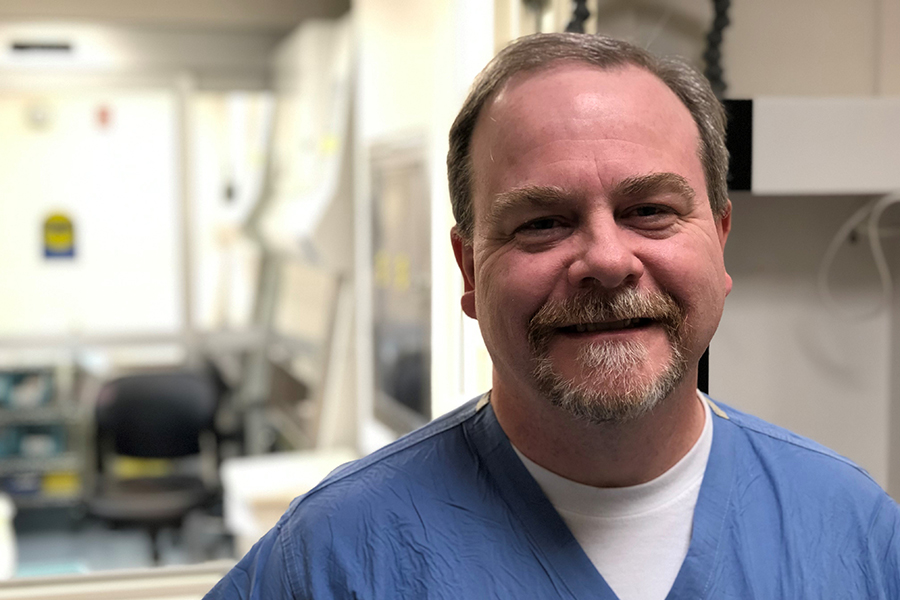
In the IV clean room in the Pharmacy at Brigham and Women’s Faulkner Hospital, pharmacists make sterile IV products that are infused directly into a patient’s body. Overseeing all of the regulatory compliance for the IV clean room is IV Services Coordinator Craig Jones, RPh, who recently earned board certification in Compounded Sterile Preparations Pharmacy from the national Board of Pharmacy Specialties.
“Craig’s role as IV Services Coordinator is very involved. He trains the staff on how to make sterile IV products and validates their skills on an annual basis to ensure their processes adhere to best practices. He oversees the cleaning of the room, monitors the temperature, humidity, pressures and ventilation and ensures all of the products that are produced are sterile. All of this is key to maintaining patient safety,” says Director of Pharmacy Services Joshua Guerin, PharmD, MBA. “I am very happy to now say we have a board-certified pharmacist overseeing our IV clean room and all of the sterile products that are produced by the Pharmacy staff. This is a new certification. There are not many pharmacists in the country who have earned it, which makes Craig, and our Pharmacy, unique.”
For Jones, it was his commitment to patient safety that drove him to seek certification. “After the New England Compounding Center events and the subsequent closure of their compounding facility in 2012, and the horrid effects that sub-standard sterile compounding practices had on patient care, recommitting to patient safety and training of others had me seeking out opportunities to grow in my understanding and expertise,” he says.
Now that he has earned certification, he can now add BCSCP (Board Certified Sterile Compounding Pharmacist) to his credentials. But more importantly, Jones feels he can better serve BWFH’s patients. “Becoming board certified brought to light some other aspects of patient care that included administration techniques, handling adverse drug events and the safe practices of handling hazardous medications,” he says. “Ideas for streamlining the monitoring and enhancing the safety of the compounded sterile preparations we regularly prepare are already being developed into action plans.”
Looking for more news from BWFH? Go to News to find articles about health, updates to our programs and services and stories about staff and patients.
Go to News